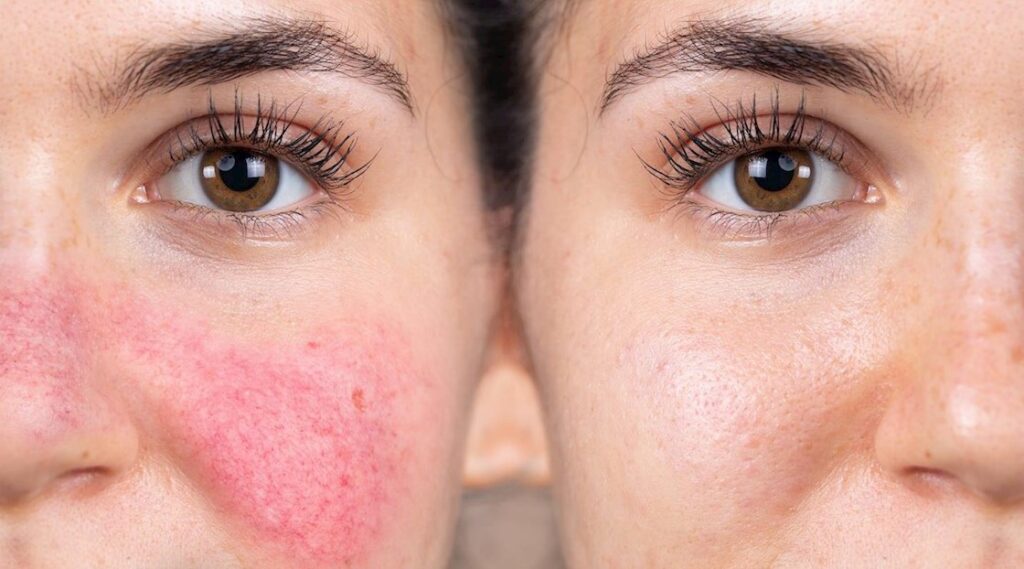Almost 16 million People suffer with rosacea, a persistent inflammatory skin condition. Redness, flushing, and visible blood vessels on the face are common symptoms, along with lumps that resemble pimples and a burning or stinging feeling. Although rosacea has no known cure, there are numerous therapies that can help manage the condition’s symptoms and stop flare-ups. Rosacea treatment clinic Singapore offers the best available treatments. Initial treatment for rosacea frequently involves topical medicines. They can be utilised either alone or in conjunction with other treatments, and they function by lowering inflammation and redness. Ivermectin, metronidazole, and azelaic acid are a few of the often used topical drugs. Drugs come in gel, cream, and lotion formulations and are applied directly to the affected area.
Oral medications
In more severe forms of rosacea, oral medications may be necessary. Medical professionals regularly administer antibiotics like doxycycline and minocycline to reduce inflammation and kill microorganisms. Low-dose oral isotretinoin may also be used in some situations. This medication, which is a derivative of vitamin A, reduces inflammation and oil production.
Laser Therapy
Laser therapy is a common rosacea remedy. By focusing on and erasing the visible blood vessels on the face, it lessens redness and evens out skin tone.
Pulsed dye laser, intense pulsed light (IPL), and fractional laser are just a few of the several types of laser therapy that are accessible. For best outcomes, laser therapy may be coupled with additional therapies.

Skip the Triggers
A key component of controlling rosacea is avoiding triggers in addition to medication treatments. Spicy foods, alcohol, hot beverages, extremely high or low temperatures, and sun exposure are some common triggers. Future flare-ups may be prevented by keeping a journal to record symptoms and identify causes.
Although the fact that rosacea cannot be cured, there are numerous treatment options to assist manage symptoms and stop flare-ups. Rosacea can be effectively managed with topical and oral medicines, laser therapy, and avoiding triggers.
Ask your doctor which treatment choices could be appropriate for you if you are having rosacea problems. You can improve your quality of life and get skin that is clearer and healthier-looking with the correct treatment strategy.







No Comments
Comments are closed.